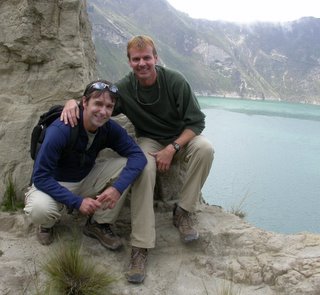Susan Sontag: Notes On "Camp"
Susan Sontag: Notes On "Camp": "46. The dandy was overbred. His posture was disdain, or else ennui. He sought rare sensations, undefiled by mass appreciation. (Models: Des Esseintes in Huysmans' À Rebours, Marius the Epicurean, Valéry's Monsieur Teste.) He was dedicated to 'good taste.'
The connoisseur of Camp has found more ingenious pleasures. Not in Latin poetry and rare wines and velvet jackets, but in the coarsest, commonest pleasures, in the arts of the masses. Mere use does not defile the objects of his pleasure, since he learns to possess them in a rare way. Camp -- Dandyism in the age of mass culture -- makes no distinction between the unique object and the mass-produced object. Camp taste transcends the nausea of the replica.
47. Wilde himself is a transitional figure. The man who, when he first came to London, sported a velvet beret, lace shirts, velveteen knee-breeches and black silk stockings, could never depart too far in his life from the pleasures of the old-style dandy; this conservatism is reflected in The Picture of Dorian Gray. But many of his attitudes suggest something more modern. It was Wilde who formulated an important element of the Camp sensibility -- the equivalence of all objects -- when he announced his intention of 'living up' to his blue-and-white china, or declared that a doorknob could be as admirable as a painting. When he proclaimed the importance of the necktie, the boutonniere, the chair, Wilde was anticipating the democratic esprit of Camp.
***
52. The reason for the flourishing of the aristocratic posture among homosexuals also seems to parallel the Jewish case. For every sensibility is self-serving to the group that promotes it. Jewish liberalism is a gesture of self-legitimization. So is Camp taste, which definitely has something propagandistic about it. Needless to say, the propaganda operates in exactly the opposite direction. The Jews pinned their hopes for integrating into modern society on promoting the moral sense. Homosexuals have pinned their integration into society on promoting the aesthetic sense. Camp is a solvent of morality. It neutralizes moral indignation, sponsors playfulness.
The connoisseur of Camp has found more ingenious pleasures. Not in Latin poetry and rare wines and velvet jackets, but in the coarsest, commonest pleasures, in the arts of the masses. Mere use does not defile the objects of his pleasure, since he learns to possess them in a rare way. Camp -- Dandyism in the age of mass culture -- makes no distinction between the unique object and the mass-produced object. Camp taste transcends the nausea of the replica.
47. Wilde himself is a transitional figure. The man who, when he first came to London, sported a velvet beret, lace shirts, velveteen knee-breeches and black silk stockings, could never depart too far in his life from the pleasures of the old-style dandy; this conservatism is reflected in The Picture of Dorian Gray. But many of his attitudes suggest something more modern. It was Wilde who formulated an important element of the Camp sensibility -- the equivalence of all objects -- when he announced his intention of 'living up' to his blue-and-white china, or declared that a doorknob could be as admirable as a painting. When he proclaimed the importance of the necktie, the boutonniere, the chair, Wilde was anticipating the democratic esprit of Camp.
***
52. The reason for the flourishing of the aristocratic posture among homosexuals also seems to parallel the Jewish case. For every sensibility is self-serving to the group that promotes it. Jewish liberalism is a gesture of self-legitimization. So is Camp taste, which definitely has something propagandistic about it. Needless to say, the propaganda operates in exactly the opposite direction. The Jews pinned their hopes for integrating into modern society on promoting the moral sense. Homosexuals have pinned their integration into society on promoting the aesthetic sense. Camp is a solvent of morality. It neutralizes moral indignation, sponsors playfulness.

